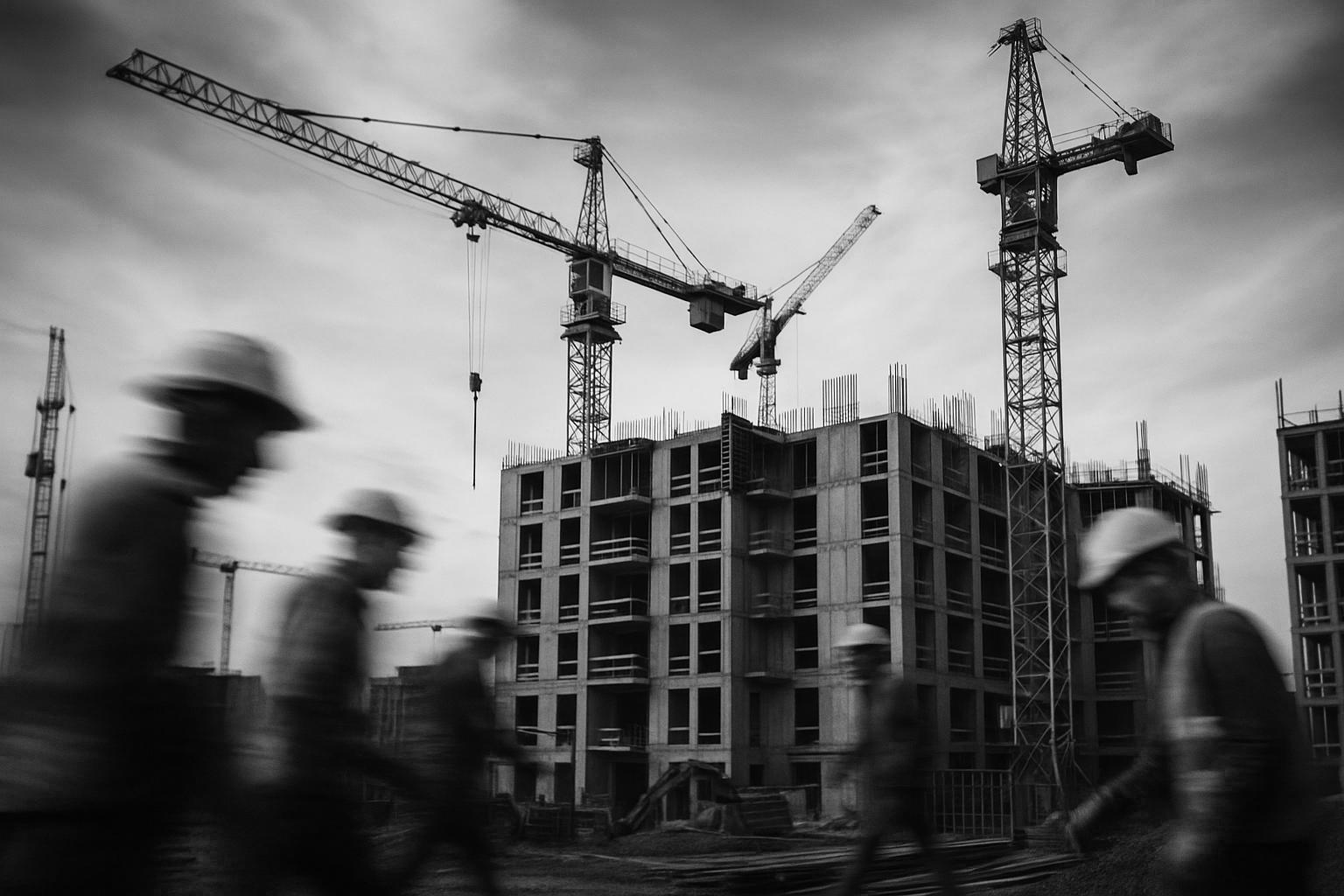The UK Government claims that nearly 100,000 homes have been expedited through the New Homes Accelerator, a scheme launched to cut red tape and remove barriers in the housebuilding sector. Deputy Prime Minister and Housing Secretary Angela Rayner said the initiative is helping to “turn the tide on the housing crisis” by accelerating the delivery of much-needed new homes. The scheme, introduced last year, supports local councils facing planning capacity challenges and fast-tracks projects by eliminating regulatory obstacles. So far, around 36,000 homes have been fast-tracked, with a further 63,000 underway, according to the Ministry of Housing, Communities and Local Government. The programme targets regions including the North West, London, Somerset, and the South East. Ms Rayner emphasised the government’s commitment to delivering 1.5 million new homes by the end of the current Parliament, underscoring this effort as part of a broader plan to increase housing supply.
The New Homes Accelerator programme, officially launched in August 2024, aims at unblocking and speeding up large-scale housing developments across England. The government collaborates with Homes England, local authorities, developers, and other stakeholders to identify delays and obstacles, such as planning and regulatory bottlenecks, that hinder project progress. Teams of planning experts are deployed locally to work closely with councils and developers on-site, troubleshooting issues and ensuring smoother project delivery. According to the government’s official announcement, this approach is intended to support wider economic growth goals while meeting ambitious housebuilding targets.
In addition to the New Homes Accelerator, the government has recently expanded its investment in housing infrastructure. This includes a £3 billion guarantee scheme aimed at housebuilders to unlock more than 20,000 new homes by providing accessible loans, thereby encouraging faster construction. This forms part of a £5 billion housing investment plan for the year, reinforcing the government’s pledge to meet the 1.5 million homes target. Separately, the government has committed £2 billion to build around 18,000 affordable homes starting from 2027, with expected completion by 2029. This funding emphasises support for working families in securing affordable housing options.
Further financial backing has been announced with a £350 million boost specifically dedicated to affordable and social housing. This includes £300 million allocated to the Affordable Homes Programme to facilitate the development of 2,800 new homes, half earmarked for social rent, alongside a £50 million increase to the Local Authority Housing Fund aimed at supporting over 250 new council homes. Additionally, in London, a £100 million Housing Kickstart Fund has been introduced to revive stalled development sites by converting market-rate homes into genuinely affordable housing, a move endorsed by Mayor Sadiq Khan as part of efforts to combat the national housing downturn.
Despite these initiatives, opposition voices remain critical. The shadow housing secretary, Sir James Cleverly, expressed scepticism about the government’s ability to meet its housing delivery promises, suggesting that increased taxes and regulatory hurdles are, in his view, hampering housebuilding efforts rather than helping them. He also recalled an incident where Angela Rayner reportedly threatened to resign over the government’s housing commitments, highlighting ongoing political tensions around the housing agenda.
In sum, while the New Homes Accelerator and associated funding packages represent significant government efforts to address the chronic housing shortage in England, the success of these programmes in delivering the promised 1.5 million homes remains closely scrutinised amid political debate and sector challenges.
📌 Reference Map:
- Paragraph 1 – [1], [4]
- Paragraph 2 – [2], [3]
- Paragraph 3 – [4], [5]
- Paragraph 4 – [6], [7]
- Paragraph 5 – [1]
Source: Noah Wire Services
